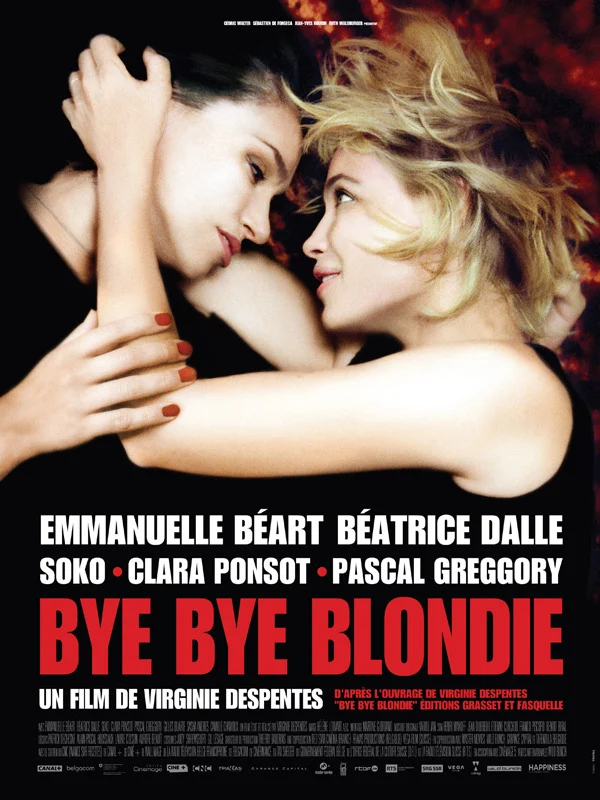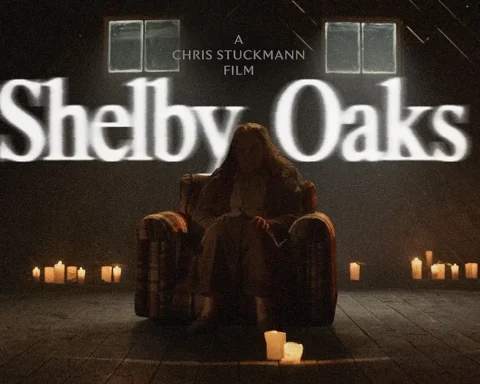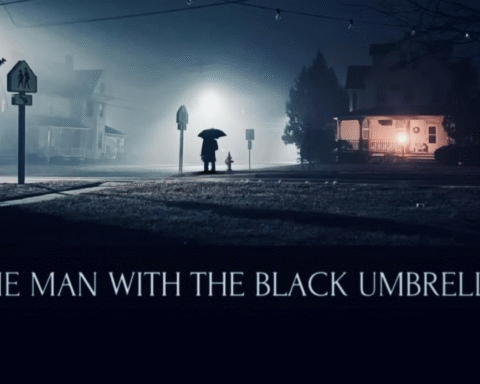It was March 27, 2012, the day I stepped into the cinema where they were screening “Bye Bye Blondie.” Like many, I had been waiting patiently for the new film by Virginie Despentes. The theater was empty, and I had read some truly vile and frankly insulting reviews of the film—particularly in Le Nouvel Observateur, to name names.

“Bye Bye Blondie” is like an alien, a film that strikes where it hurts, using exactly the words that shouldn’t be used, and it’s a rough pleasure to watch. Let’s be honest: only Virginie Despentes could have dared to make a film like this in 2012, and we can only be grateful to her for giving us a gift of this magnitude. To all those who, like me, are nostalgic for the punk years when the idea of “revolution” really meant something, pull out your Bérurier Noir vinyls, your leather jackets, and your mohawks, because both the soundtrack and the beating heart of this feature film will hit you hard.


Emmanuelle Béart and Béatrice Dalle
I would have liked to say that “Bye Bye Blondie” isn’t a women’s film, but the script is intensely focused on its two main characters: Frances (played by Emmanuelle Béart as an adult and Clara Ponsot as a teenager) and Gloria (played by Béatrice Dalle as an adult and SoKo as a teenager). These are two endearing characters because of their violence, their convictions, and their desire to live a different life, to find off-center reference points where society doesn’t matter, where love rules, and where conventions simply don’t exist. It’s a utopian message that speaks to me like verses from the cruellest yet sweetest poetry. SoKo’s performance as the teenage Gloria is particularly noteworthy, filled with all the rage and violence that her character and choices impose on her. The same goes, of course, for Béatrice Dalle, who once again finds a role that fits her like a glove, showcasing her talent and charm in the best possible way. And even though the Béart/Dalle pairing sometimes wavers and induces a sense of unease due to a lack of coherence or comedic discomfort, it remains both touching and sharp. A lesbian couple like this is rarely seen on the big screen: a couple that raises its fist, rebels, and ultimately says “screw you” with fervor.


Soko et Virginie Despentes.
Feminism, rage, antisocialism, lesbianism, destruction, and lots of love: where people who live outside the norm give society the middle finger.
The script, adapted from Virginie Despentes’ 2004 novel of the same name published by Grasset, includes its share of intriguing changes, the main one being that the character of Eric is replaced by Frances, preserving all the nuances of the role in a female form. A fascinating choice, especially in the tradition of French cinema, which carried its share of risks with regard to critics. Personally, I choose to praise this decision because this female love story, rocked by punk, rebellion, and dreams, transported me through time, art, and life in general.
The relationship between Frances and Gloria remains, for me, a love story that ends with an essential notion, a crucial phrase, a feeling that remains the foundation of true love: “I’m not afraid of who you are.” And with those words, everything is said: “Bye Bye Blondie” was written and etched into history.


Clara Ponsot and SoKo
I wouldn’t go so far as to say that “Bye Bye Blondie” offers a necessary life lesson, but I will simply say that it delivers a slap in the face to all those who really need it. Reading or re-reading Despentes has never been as enjoyable as after this lesson in contemporary cinema, where the filming style, somewhere between experimental video and contemporary classical technique, creates a pulsating UFO, an open-heart artistic operation whose outcome could be fatal. The film’s impact isn’t meant for the general public, which I think is an important conclusion to emphasize, and the reception has been mixed in the media. Misunderstanding? Jealousy? Stupidity? Frustration? Whatever the case, painting such a raw and faithful portrait of the punk era and turning an audaciously rebellious RMI recipient into a demiurge character personally fills me with glee and, fortunately, gives me hope for the future of unconventional cinema.
“We came, we said what we had to say, we left, and I like that.” —Joe Strummer (1983)









